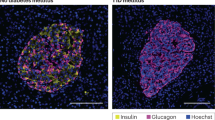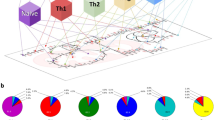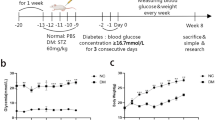Abstract
Immune responses to self are kept in check by tolerance mechanisms, including suppression by regulatory T cells (Tregs). The defective generation of Tregs specific for self-antigens may lead to autoimmune disease. We identified a novel population of human CD4^+^ Tregs, characterized by high surface expression of CD52, which is co-generated in response to autoantigen. Blood CD4^+^CD52^hi^ T cells were generated preferentially in response to low-dose autoantigen and suppressed proliferation and interferon-[gamma] production by other T cells. Depletion of resting CD4^+^CD52^hi^ T cells enhanced the T-cell response to autoantigen. CD4^+^CD52^hi^ Tregs were neither derived from nor distinguished by markers of conventional resting CD4^+^CD25^+^ Tregs. In response to the pancreatic islet autoantigens glutamic acid decarboxylase, the generation of CD4^+^CD52^hi^ Tregs was impaired in individuals with and at-risk for type 1 diabetes, compared to healthy controls and individuals with type 2 diabetes. CD4^+^CD52^hi^ Tregs co-generated to self-antigen may therefore contribute to immune homeostasis and protect against autoimmune disease.
Similar content being viewed by others
Article PDF
Author information
Authors and Affiliations
Corresponding author
Rights and permissions
About this article
Cite this article
Dromey, J., Lee, B., Young, H. et al. Immunity to self co-generates regulatory T cells. Nat Prec (2008). https://doi.org/10.1038/npre.2008.1774.1
Received:
Accepted:
Published:
DOI: https://doi.org/10.1038/npre.2008.1774.1



